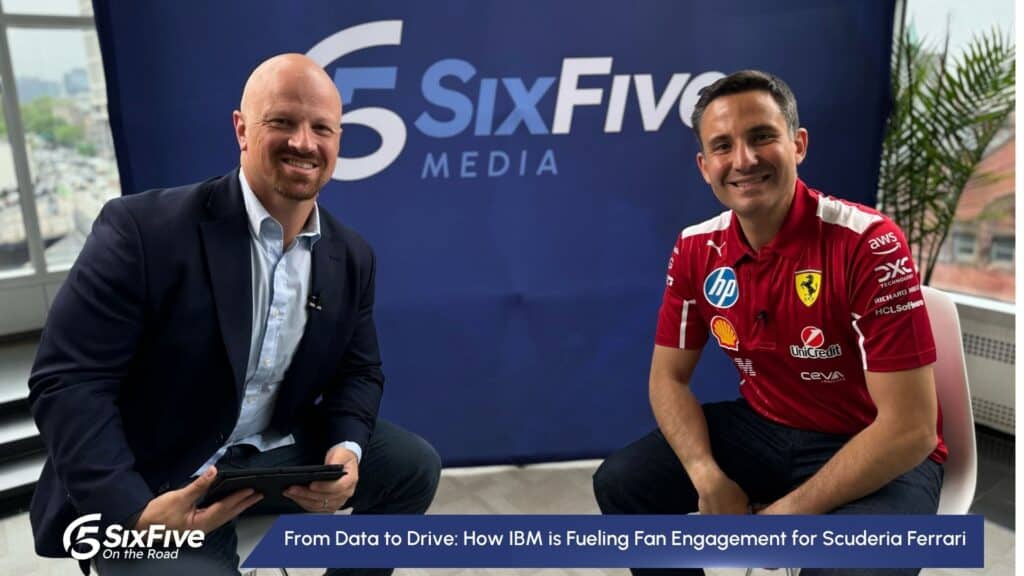The Six Five Team discusses Amazon FTC.
If you are interested in watching the full episode you can check it out here.
Disclaimer: The Six Five Webcast is for information and entertainment purposes only. Over the course of this webcast, we may talk about companies that are publicly traded and we may even reference that fact and their equity share price, but please do not take anything that we say as a recommendation about what you should do with your investment dollars. We are not investment advisors and we ask that you do not treat us as such.
Transcript:
Daniel Newman: We’ve heard this for a while, but the FTC is now going after Amazon’s commerce business and Lina Kahn is going to fail miserably here. Prediction. Not sir. But the idea that Amazon is a monopoly of what they call an online superstore, which is its own subcategory that doesn’t actually exist. They’ve made up now. So Amazon has something like 35% of ES ecommerce. And what they did was they looked at the four biggest though and then determined that Amazon has 80% of the four biggest, which is Target, eBay, Apple, Walmart on top of Amazon. And then they decided that maybe people only and exclusively are able to buy their goods and services from these four particular competitors in Amazon. And then they made a case based upon that. And effectively, Amazon is forcing people to use their marketplace, which they’re not. And then they’re forcing people to use their logistics and other services if they use their marketplace, which maybe there’s some required service utilization there, but no one’s requiring to use their marketplace in the first place.
And in that case, Amazon’s always able to be more price competitive than those selling in its marketplace. Now here’s the other problem though with their entire argument is, Pat, I’m pretty sure you don’t have to buy toothpaste online. You can buy your hair products or your favorite supplements or whatever you want to buy, I swear, Pat, there’s a CVS ans a Walgreens on a few corners in town. You can go to the H-E-B, the HEB here in Texas, but there are quite a few places that you can buy, including Walmart stores, Target. You can actually go in and buy all this stuff on your own. So the fact is, the argument is being filtered down, Pat, into little small bifurcations of the market so that somehow they can convince that Amazon has this monopolistic power. And frankly, they just don’t. If I go onto Amazon and I see the hair product that I need is more expensive, I have the right to get in my car and I can drive over to Walgreens or I can go to Target or Walmart and I can buy it there.
I can also by the way, shop it around online and look at other stores. I can look at eBay and look at Target. I go to other online stores and say… So I’m not forced to buy anything. So this definitely doesn’t cut the consumer harm metric. Then the second question is, does it cut the competition harm? And the truth is, Amazon is doing nothing more, but really driving and forcing innovation. They’re forcing innovation on speed of delivery, they’re forcing innovation on the online marketplace innovation, but there’s plenty of choice, Pat. Like I said, it’s 37% of the US ecommerce market, much less than that on a global basis. And people have choice. So people have choice. And I mean this as businesses and as consumers. Meaning if you’re a business and you want to sell online, you have plenty of options of where you want to sell.
Is Amazon among the biggest and best, do you want to participate there? Does Amazon have some rights for actually spending all the time, money, and effort to develop a marketplace? This is not Apple. I mean, they are not beating people over the head and saying, look… And this is why maybe I get so frustrated about the Apple thing. I’m going to stop here so you can chime in. But the Apple thing, you have two choices of where your app goes. I mean, that’s really it. It’s either going on Android or it’s going on iOS. And they don’t think that is worth putting some effort to figure out if there’s monopolistic behaviors of abusive power, Pat.
But if you’re an online seller, how many places could you list your stuff, including on your own site if you want? Tens, hundreds, thousands of different options, Pat? I just simply don’t get it. I don’t get why this is the choice. This is the thing that the FTC and US taxpayer dollars wants to focus on, when in the end, consumer is largely winning. And if you’re a business, you have enough competitive choice of where you want to put your time and effort. And if Amazon’s charging you too much, sell it somewhere else.
Patrick Moorhead: Yeah. So Amazon dominates US retail. I don’t think anybody can argue that. And Amazon, I think, so-
Daniel Newman: Do you think that’s the right word? Dominates? I mean, I’m asking. You think it’s dominate?
Patrick Moorhead: Dan, ask your neighbors, ask your family. Where’s the first place they go for online commerce? And 99 out of a hundred of them will say Amazon. You did cite the 37%.
Daniel Newman: That’s what I found.
Patrick Moorhead: It’s not over 50%, but it is a dominating force.
Daniel Newman: It’s a very strong brand.
Patrick Moorhead: They do have competition. Now while Lina Khan has whiffed so many times, statistically speaking, the next lawsuit will have a higher degree of success. Those are just statistics And it’s like a batter getting up to bat.
Daniel Newman: You well balanced. I love it.
Patrick Moorhead: Well, we’re kind of doing the John Ford thing here.
Daniel Newman: On the other hand.
Patrick Moorhead: Yeah. And there are some emails that sound like smoking guns. If you can go in there and look through them, and I did, and they’re not pretty. So who knows? This one might end up a little different. I think that this one’s going to come down to market definition. When you look at the grand retail, Amazon has very small market share, right? When you look at online retail, it’s very large. And if Lina Khan and company can essentially go in and put up that market definition, come up with some smoking gun emails about how they’re treating marketplace and if they do find evidence or Amazon took marketplace information and used it to manipulate their own pricing to get themselves in advantage, then they’re going to be in trouble.
The breakup was not floated here, so I don’t think that that might be something on there, but if found guilty could be penalties, there could be maybe a separation between marketplace and the rest of the commerce group. But yeah. If you’re a big company and you’re really successful, yeah, you’re at risk under the current FTC and the administration. Wow. Antitrust is always fun, Dan. And I don’t know which way this case is going to go. I do wish that FTC would spend more time on companies like Apple where it’s literally black and white than Amazon when it’s more shades of gray.
Author Information
Daniel is the CEO of The Futurum Group. Living his life at the intersection of people and technology, Daniel works with the world’s largest technology brands exploring Digital Transformation and how it is influencing the enterprise.
From the leading edge of AI to global technology policy, Daniel makes the connections between business, people and tech that are required for companies to benefit most from their technology investments. Daniel is a top 5 globally ranked industry analyst and his ideas are regularly cited or shared in television appearances by CNBC, Bloomberg, Wall Street Journal and hundreds of other sites around the world.
A 7x Best-Selling Author including his most recent book “Human/Machine.” Daniel is also a Forbes and MarketWatch (Dow Jones) contributor.
An MBA and Former Graduate Adjunct Faculty, Daniel is an Austin Texas transplant after 40 years in Chicago. His speaking takes him around the world each year as he shares his vision of the role technology will play in our future.







